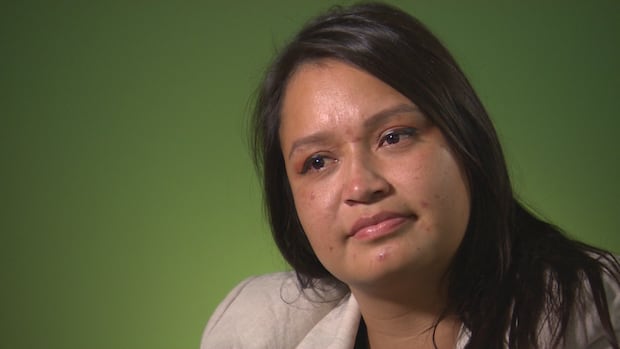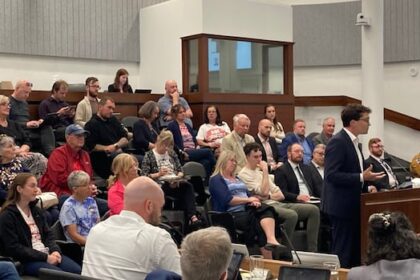WARNING: This article may affect those who have experienced sexual violence or know someone affected by it. Survivors of sexual violence say a newly released national report on how the justice system fails them has a potentially fatal flaw: its recommendations for change are not enforceable. Unless those in authority make those changes, the status quo will be maintained — a justice system that favours the accused at the expense of the victim, they say.”To the people who have the power to enact changes in this system, do something. So many people have died with their stories and their truths, but you didn’t do anything,” said Jewel Pierre-Roscelli, who was sexually assaulted in 2023. “It’s dehumanizing.”On Wednesday, the Federal Office of the Ombudsperson for Victims of Crime released a report titled Rethinking Justice for Survivors of Sexual Violence: A Systemic Investigation. The 288-page report has 43 recommendations for change.It’s time for police and lawyers to learn the difference between consent and survival mode, the report says, and to stop treating survivors as criminals. It’s time to stop weaponizing the victim’s therapeutic records to hold it against them in court. And to ensure that survivors can access these rights, it’s time to provide independent legal counsel — a lawyer — just like the accused.”At its core, we’d like to see enforceable rights for the victim,” said Benjamin Roebuck, the federal ombudsperson for victims of crime. “Right now, they’re feeling more like evidence than a victim.”’We deal essentially with myths and stereotypes about sexual violence that … shouldn’t be part of the justice system,’ says Benjamin Roebuck, the federal ombudsperson for victims of crime. (Adrian Wyld/The Canadian Press)That’s in part because players in the justice system — from police to judges — too often mistake a victim’s response to an assault as consent to the assault, instead of recognizing it for what it is: an effort to survive it, say victim advocates and survivors.”I’m someone who’s just experienced hurt, and police are worried if I’d said ‘no’ or not,” Pierre-Roscelli said. “It’s retraumatizing. I’m not treated like a human. I’m not treated like I am believed.”The report, Roebuck said, recognizes that.”We deal essentially with myths and stereotypes about sexual violence that aren’t valid lines of questioning or reasoning and shouldn’t be part of the justice system,” Roebuck said in an interview.”Like making assumptions about what it looks like when someone is afraid.” It’s critical that all judges would have to take training.- Alexa BarkleyA couple of the report’s recommendations would try to remedy that. It calls for a review of “trauma-informed protocols for police investigations” and for “ongoing training to criminal justice actors on the unique needs of survivors.”It’s a good start, said Alexa Barkley, an advocate with the advocacy and survivor support organization End Violence Everywhere, or EVE. But it’s missing a key component, she said: mandatory, across-the-board training for all judges (old and new) who preside over sex assault trials.”It’s critical that all judges would have to take training,” said Barkley.Alexa Barkley says the report and recommendations are ‘encouraging,’ but don’t go far enough. (CBC)The report also calls for the elimination of “KGB statements” — sworn and recorded video statements by victims that are taken by police to detail allegations that can be used in court if an alleged victim changes their testimony. Those statements include a caution police give to sex assault victims that lying under oath is a crime. “These warnings treat survivors like suspects based on the myth that survivors of sexual violence are more likely to lie,” the report reads.Barkley welcomes the recommendation.”I’ve lived that,” she said in an interview. “In my police interview, that’s what they started with. You’re presumed to be lying.”Pierre-Roscelli concurred.”It goes to being dehumanized, and like I’m guilty of something. Like I’m not a victim,” she said.Therapeutic records need protection: reportAnother recommendation calls for better protection of therapeutic records. Currently, the defence can request access to a victim’s prior therapeutic records, which can then be used against them in court.The consequences can be dangerous. Some survivors avoid accessing mental health support for fear of disclosure, leading to “suicidal ideation,” said Roebuck.Mid-trial applications to obtain private records can also create delays deemed unfair to the accused, leading to the possibility of a stay of charges, the report says.”The accused should not benefit from this,” said Roebuck.He hopes a recommendation to amend the Criminal Code will change that. The report recommends the code be changed to “recognize that psychiatric, therapeutic and counselling records … are distinct from other private records and should be the subject of a higher threshold to be accessed by the defence.”That’s an “encouraging” recommendation, said EVE’s Barkley, but “I don’t think he’s going far enough.””Our proposed amendment to the Criminal Code suggests that therapeutic records should be off the table completely.”Access to legal counselThe report also calls for victims to have access to free legal counsel in instances where their basic rights, as spelled out in the Canadian Victims Bill of Rights, are at risk of being violated.It’s a recommendation that Karen Bellehumeur was glad to see. Bellehumeur is a former Ontario Crown attorney who now represents sex assault survivors. She notes that while the victims’ bill of rights — a law passed in 2015 — is designed to protect people like sex assault survivors, it’s often overlooked in court.”What is the point of this bill if it has no teeth, if it has no enforceability?” Bellehumeur said. “So this [recommendation] is essential that we get some teeth for this bill.” The recommendations are a good starting point. But we hope they go further.- Karen BellehumeurRoebuck agrees that if an accused can have access to a lawyer to protect their rights, so should the victim.It’s not reasonable, he said, that the person “alleged to have caused the harm is guaranteed that they’ll be told what their rights are … and not to provide that to people who have been harmed,” he said.Still, Bellehumeur said “the recommendations are a good starting point, but we hope they go further.”Lawyer Karen Bellehumeur says while the Canadian Victims Bill of Rights is designed to protect people like sex assault survivors, it’s often overlooked in court. (Submitted by Karen Bellehumeur)Specifically, victims need that access to free legal advice from the start, as soon as they reach out to police, she said.What’s more, she said, that legal support should be provided equitably, across the country. Right now, it’s not, and this recommendation won’t change that, said Bellehumeur.Overall, survivors and advocates were grateful for the report’s message: right now, survivors are not getting the justice they deserve, and changes are required.But the recommendations aren’t enforceable. The office of the ombudsperson for victims of crime can demand a response from the federal government, but it can’t mandate action.What’s more, the recommendations are not the “complete overhaul” that the legal system requires, said Barkley.”If the core of the system is to favour the accused at every turn, none of these changes are going to make a whole lot of difference,” she said.
Thursday, 5 Mar 2026
Canada – The Illusion
Search
Have an existing account?
Sign In
© 2022 Foxiz News Network. Ruby Design Company. All Rights Reserved.
You May also Like
- More News:
- history
- Standing Bear Network
- John Gonzalez
- ᐊᔭᐦᑊ ayahp — It happened
- Creation
- Beneath the Water
- Olympic gold medal
- Jim Thorpe
- type O blood
- the bringer of life
- Raven
- Wás’agi
- NoiseCat
- 'Sugarcane'
- The rivers still sing
- ᑲᓂᐸᐏᐟ ᒪᐢᑿ
- ᐅᑳᐤ okâw — We remember
- ᐊᓂᓈᐯᐃᐧᐣ aninâpêwin — Truth
- This is what it means to be human.
- Nokoma











